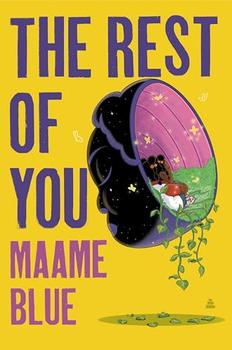(11/10/2024)
Lia is gone but she's left a 21/2 year old toddler behind. Teo was babysitting Joel when Lia was discovered and so by default he becomes his temporary guardian. But what does a 30 year old bachelor know about taking care of a kid in diapers who speaks his own private toddler language? Not much, as it turns out. What does Teo want to learn about taking care of said child? Not much, either. No one seems to know who Joel's father is so therefore finding him is problematic. For the time being child services think Joel is in good hands--Lia trusted Teo to baby sit after all, Teo is stable with a good job from which he can get leave, and has a home with his father, Vic, for the duration. He can go back to his London flat when either Joel's family or a foster family can be found for him. Preferably, Jewish since Joel and Lia were Jewish. Teo doesn't practice but his father a Scot Catholic, widowed from a Jewish wife, has been active in the local synagogue.
Teo is surrounded by his old group of school friends to which Lia belonged -the only female. His best friend, Ben, is rich, unemployed and lives in a mansion that has been his since his 18th birthday. Whenever Teo came home he fell right back into the care-free card playing, drinking, partying, clubbing lifestyle they've shared since they emerged from childhood. Their relationship is old and fraught with the stresses that familiarity and established roles that over time have developed. Ben is the star, the leader, the jock and Teo is the shorter, quieter, steadier follower. He is also the one of the group that has broken free of the hometown--he's moved to London and only comes home once a month to visit his sick father, Vic. A toddler certainly changes the dynamic.
I loved the book because, despite the circumstances, a child alters everything about the life led by its caretaker before its arrival. It is funny, having had a child, to see the situation from the aspect of a male in charge. Though people think women are born knowing exactly how to raise children that isn't true. What is true, however, is that women from early on are more involved with children--younger siblings, cousins, and as teens babies for whom we babysit, then as we get older our friends' or older siblings new babies--we just are around them all the time and usually are interested in them even in their earliest stages. Men just don't pay that much attention and so if they find themselves in charge, they are really at sea. To see Vic attempt to make up for what he sees as shortcomings in his role as Teo's father, and Teo try to determine how much TV is acceptable and Ben try to avoid the whole situation is fun but serious, too.
In the end, since everyone cares about Joel and wants him to be safe and happy all three of them figure it out and somehow a new life develops for them all.
Interwoven with the questions of parenting are also the concepts of faith, jew vs jewishness and the process of maturing from our foot in adulthood 20's into 30 year olds with a touch of awareness of one's future.
One of the characters, new to the community,is the young rabbi, Sybil. Her affluent family considers themselves to have assimilated in the English community and are upset at her choice of career. This was only mentioned in passing but it was an idea that was a bit jarring, especially in the present time with the worldwide problems in nations finding themselves dealing with an influx of immigrants. She, too, as the religious leader becomes involved in the question of what to do with Joel. Also, being close in age to both Teo and Ben, she becomes involved in their relationship as well.
Closing the book brings with it a sense of satisfaction that the characters are on a path of success leading to lives filled with possibility.



